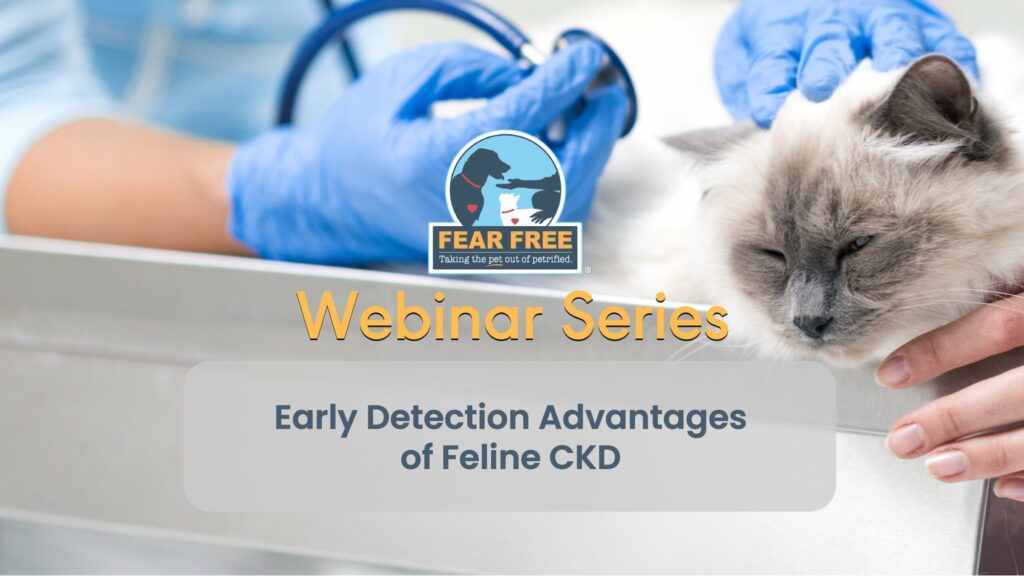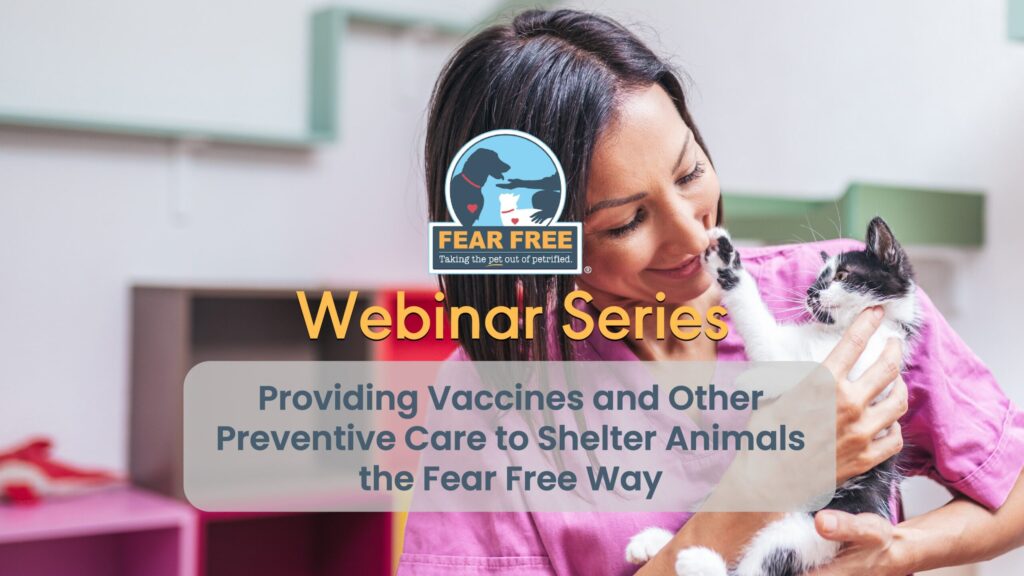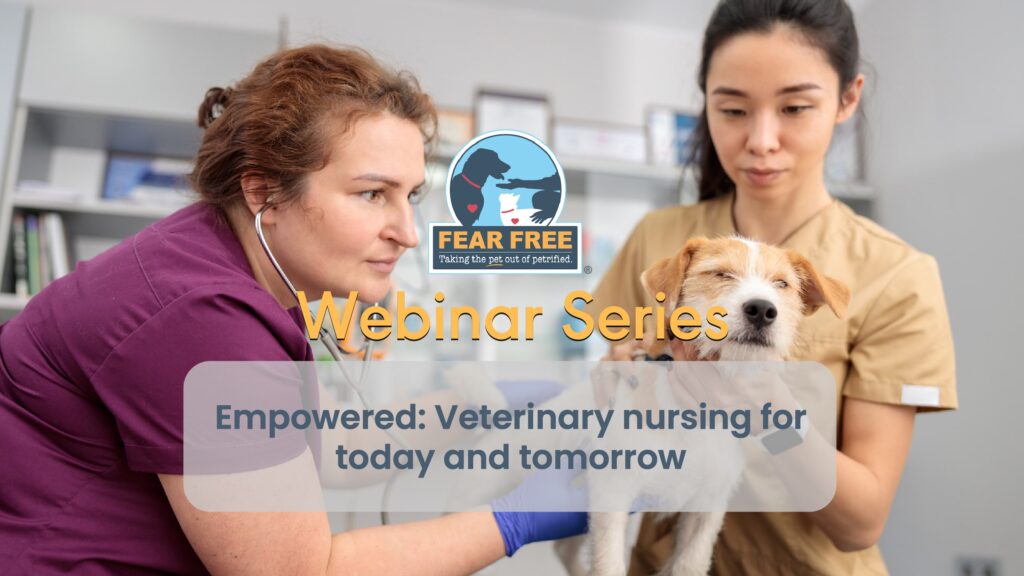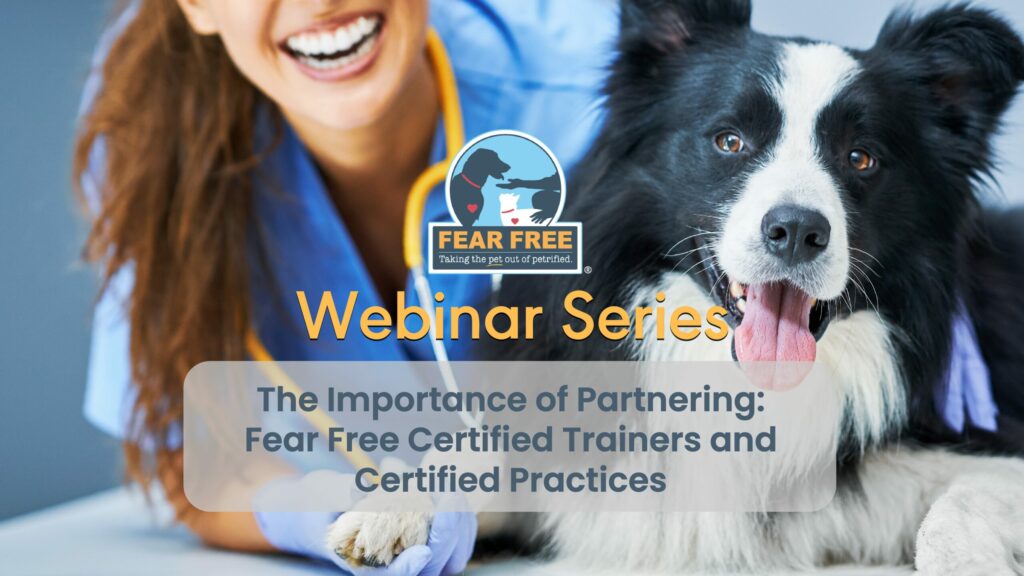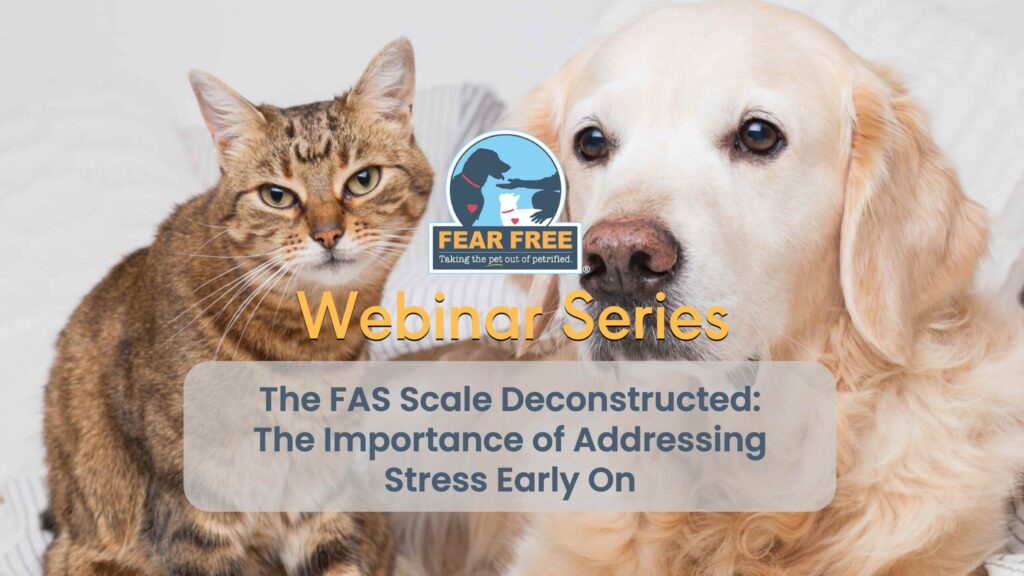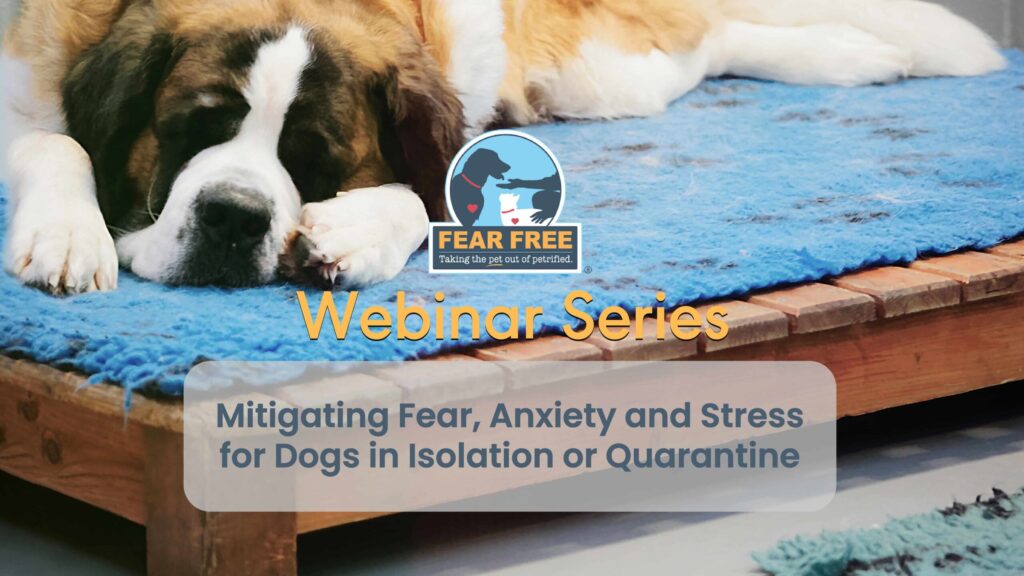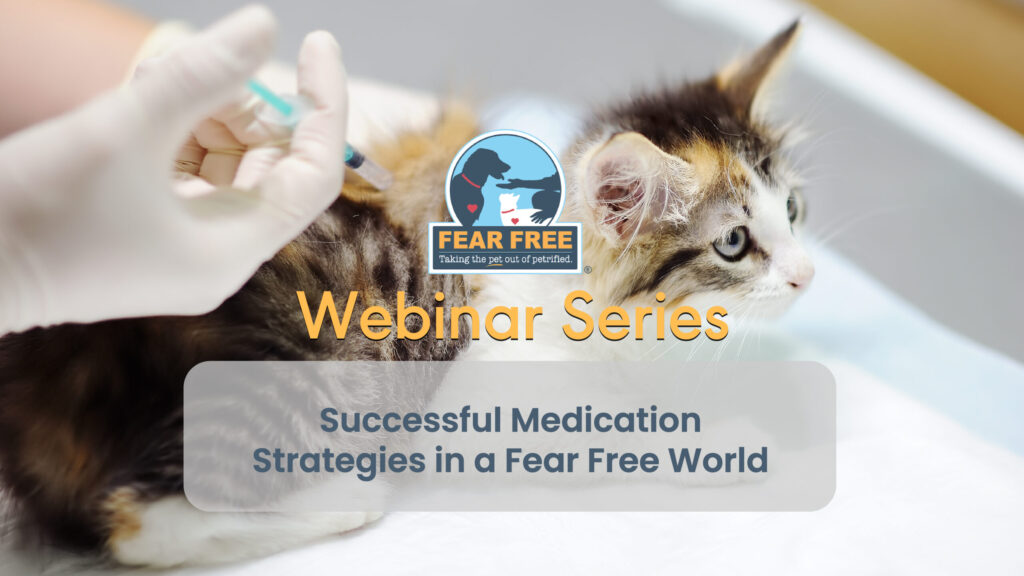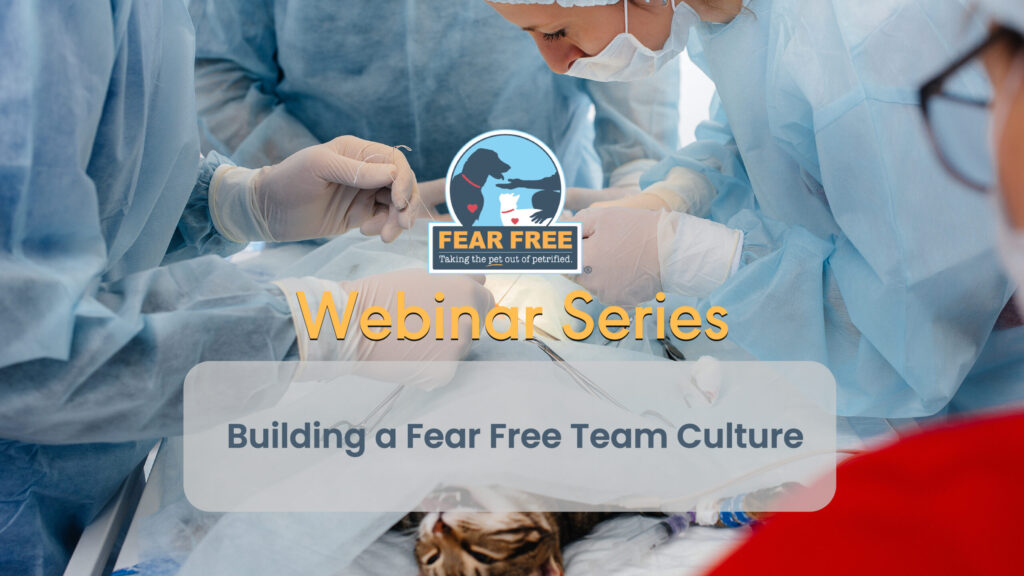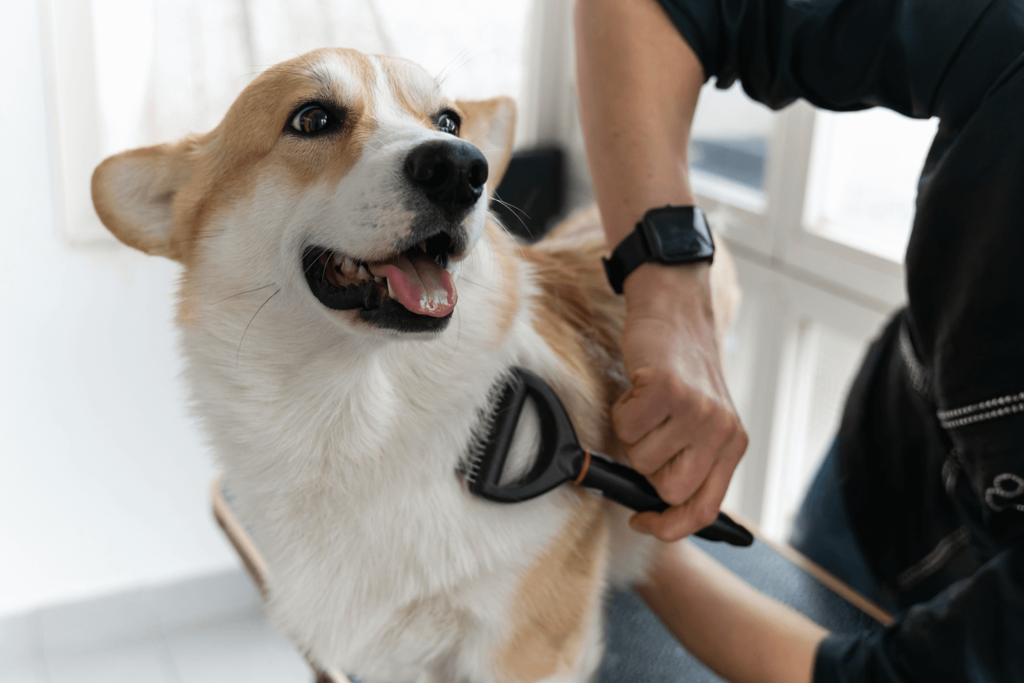
Necessary, but Never Urgent
Pet grooming provides many physical benefits to pets, including healthier skin and coat, shorter nails, and overall cleanliness. Pets and owners have more quality interactions when pets are regularly groomed and feel good. I am a firm believer that grooming enhances the canine-human bond. However, grooming is never urgent enough to sacrifice a pet’s emotional well-being. Sometimes groomers, myself included, feel pressure to do a perfect trim, but this is not always practical or possible. Often, pets require comfort grooms focusing on sanitary issues rather than esthetics; this is especially true of young and old pets. Nevertheless, it is critically important that the pet owner is on board with a pet professional’s care plan.
Individualized Care Plans
Fear Free gives pet professionals the tools to constructively advocate for pets experiencing fear, anxiety, and stress. By incorporating Fear Free practices into my grooming business, I was able to educate clients regarding fear, anxiety, and stress in pets and confidently manage client expectations. As a Fear Free Certified Groomer, I can skillfully demonstrate to a client the need for an individualized approach to grooming their pet, thus reassuring them the pet is in good hands. I have built long-lasting relationships with my clients using Fear Free principles and a sincere desire to help. Additionally, Fear Free techniques are most successful when I actively encourage owners to participate; after all, Fear Free starts in the home.
The Fear Free Difference
Fear Free is a mindset encompassing knowledge, skill, integrity, and compassion backed by behavioral science. Fear Free values helped me develop my pet care philosophy: helping every owner will help every pet. As a result, veterinarians, groomers, local business owners, and clients often refer potential customers to me. I have gained many wonderful customers this way, and I encourage all groomers to continue their education with Fear Free.
Lastly, Fear Free practices are rewarding and fun. There is no better feeling than helping a struggling pet succeed. When it comes to grooming, you can’t always do the “good dogs,” but why can’t all dogs be good with an individualized approach? The answer is they can.
Bio
Elsebeth DeBiase is an award-winning IPG Certified Master Groomer with 22 years of experience in the pet industry. As a graduate of the University of Maine Department of Animal Sciences, she has an understanding of the animal industry that encompasses farm, veterinary, and pet industries alike. In 2011, Elsebeth opened Coastal Creations Pet Salon with the goal of providing individualized services to her four-legged clients while utilizing state-of-the-art equipment, compassionate handling methods, and modern styling techniques. Her specialties include small dogs, cats, and disabled and senior pets. Elsebeth is Fear Free and Low-Stress Handling Certified. She recently completed the Canine Arthritis Management (CAM) training for pet professionals to help raise awareness of the symptoms and prevalence of canine osteoarthritis.
This article was reviewed/edited by board-certified veterinary behaviorist Dr. Kenneth Martin and/or veterinary technician specialist in behavior Debbie Martin, LVT.
